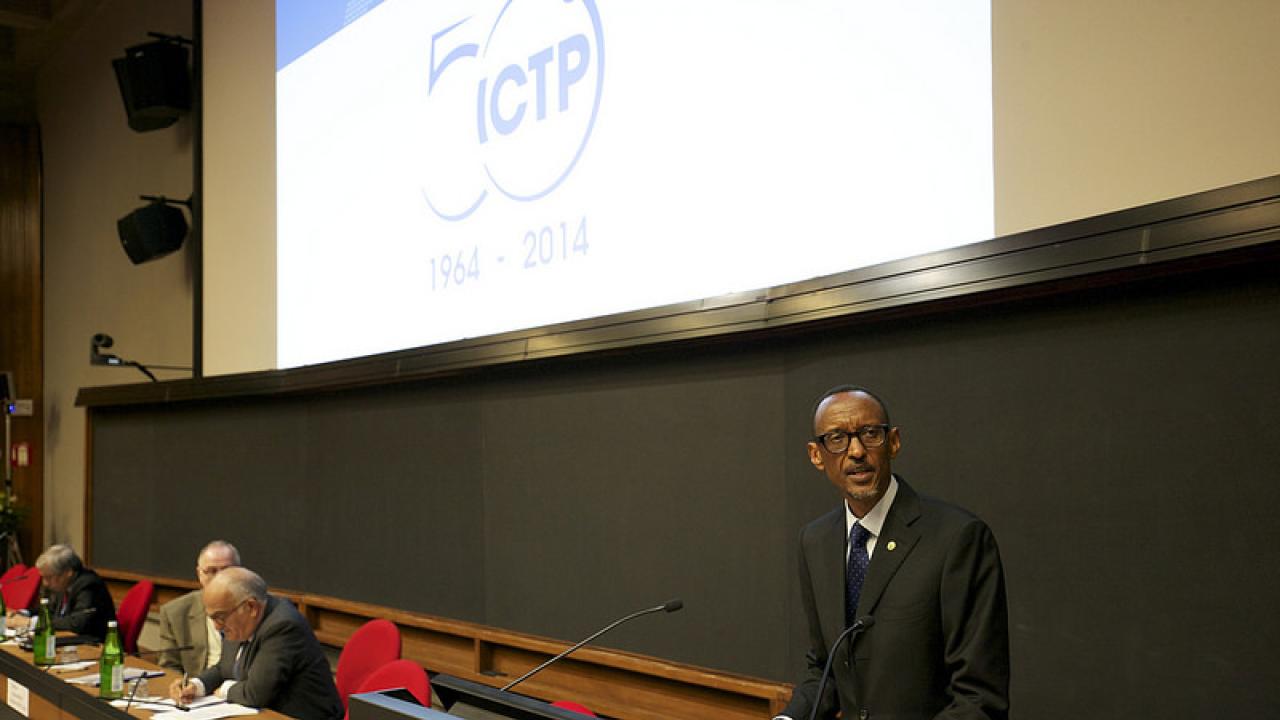
Extending its successful model of scientific training and research to the developing world, ICTP announced at its 50th anniversary celebrations the establishment of a partner institute in Rwanda that will establish the country's first master's programme in physics.
The East Africa Institute for Fundamental Research, to be located at the University of Rwanda in Kigali, will mirror ICTP's research and training areas. It will host regional and international schools in partnership with ICTP, as well as the master's courses. The University has begun renovations of a building that will house the partner institute.
"ICTP’s commitment to establish its East African regional centre in Rwanda is of great practical and symbolic importance to us as a nation," remarked Rwandan President Paul Kagame during the inauguration of ICTP's festivities. "We look forward to working together with the rest of the region and ICTP to make this venture a success. You can count on our strong support," Kagame said.
"Our goal is to bring ICTP's unique blend of high-quality physics and mathematics education and high-level science meetings closer to scientists in Africa, to help strengthen the continent's research capacity," added ICTP Director Fernando Quevedo.
ICTP will work closely with Rwanda's Ministry of Education and the University of Rwanda in the planning and implementation of the centre. Silas Lwakabamba, Minister of Education for Rwanda, described some of the many benefits of the centre to Rwanda in his presentation on the second day of ICTP's 50th anniversary celebrations. "Graduates of the ICTP programme will gain the high level skills necessary that can enable them to support the education system through mathematics or physics teaching or to undertake careers or research in key sectors of the economy," he said.
ICTP already has well-established contacts with Rwandan scientists and institutes, and has played an important role in strengthening the country's wireless network infrastructure. In 2014, the Centre sponsored two international schools at the University--one on space science and the other on geophysics.
















